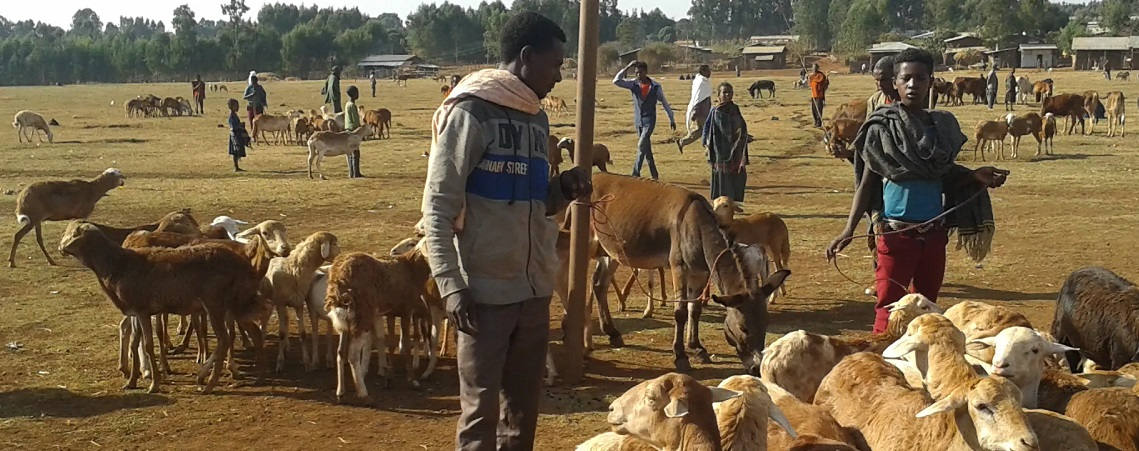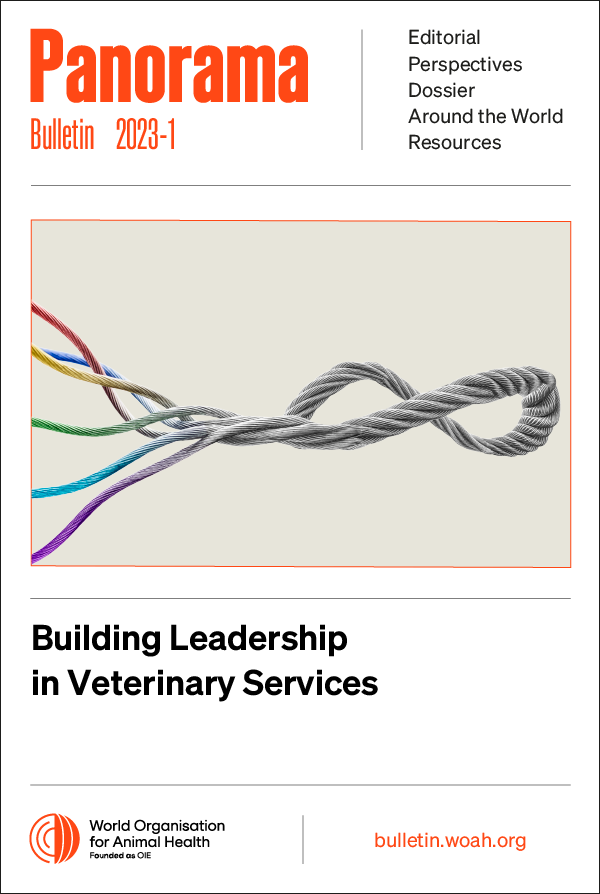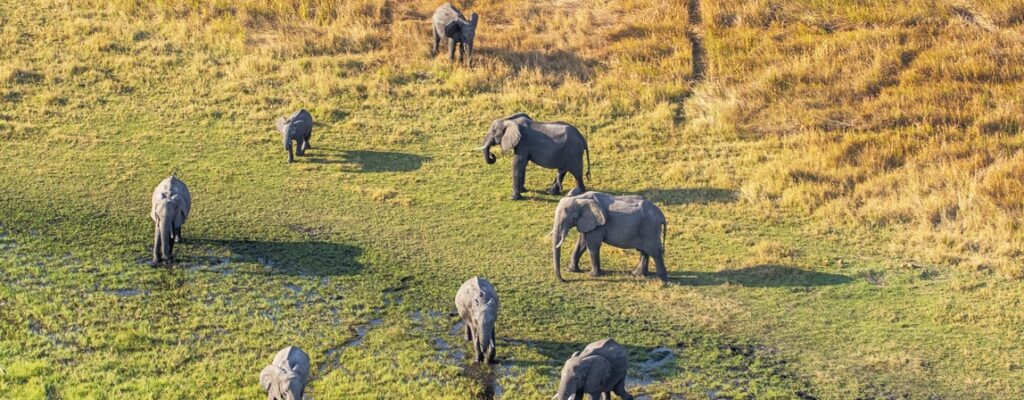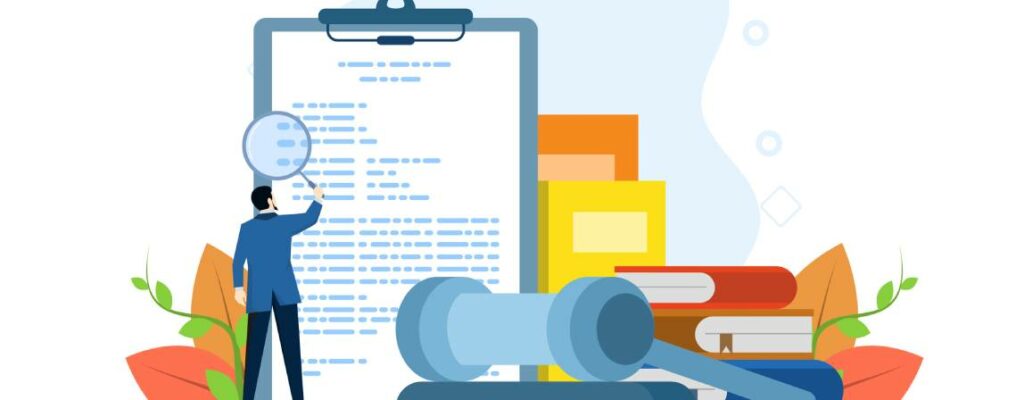Perspectives Posted on 2023-02-22 15:32:03
Opinions and strategies
Building capacities for animal health using the Global Burden of Animal Diseases (GBADs) approach
Keywords
Authors
Edna Massay Kallon (1), Jonathan Rushton (2), Ben Huntington (3, 4) & Matthew Stone (5)
(1) WOAH Technical Lead for Global Burden of Animal Diseases (GBADs), International Standards and Science Directorate, World Organisation for Animal Health (WOAH).
(2) Director of the Global Burden of Animal Diseases (GBADs) Programme, Institute of Infection, Veterinary and Ecological Sciences, University of Liverpool, United Kingdom.
(3) Programme Manager, The Global Burden of Animal Diseases, Institute of Infection, Veterinary and Ecological Sciences, University of Liverpool, United Kingdom.
(4) Pengwern Animal Health Ltd., Wallasey Village, United Kingdom.
(5) Adviser to WOAH Director General on GBADs, SPADE Solutions, New Zealand.
The designations and denominations employed and the presentation of the material in this article do not imply the expression of any opinion whatsoever on the part of WOAH concerning the legal status of any country, territory, city or area or of its authorities, or concerning the delimitation of its frontiers and boundaries.
The views expressed in this article are solely the responsibility of the author(s). The mention of specific companies or products of manufacturers, whether or not these have been patented, does not imply that these have been endorsed or recommended by WOAH in preference to others of a similar nature that are not mentioned.
Building the capacity of Veterinary Services to use the GBADs approach and the information generated from this will allow better decision-making when it comes to allocating resources to meet the technical, economic and social needs of farmers and their wider communities. In fact, all those involved in terrestrial and aquatic livestock production and processing will benefit. The intention is to manage, analyse and present data that can be interpreted at the local, national, international and regional geographic scale, categorising this information by production sector and system, as well as by gender.
The GBADs programme will draw on existing data from a large variety of public- and private-sector sources by forming data alliances with multiple stakeholders. WOAH and Veterinary Services play a key role in data generation, reporting and validation. Information from the PVS Evaluation process will be used to assess the readiness of Veterinary Services to perform economic analysis. It will also help them to determine the best ways to develop their capacity to provide data and carry out economic analyses using the GBADs approach.
Numerous PVS Pathway Critical Competencies support economic literacy for Veterinary Services. Others address data management, which is essential to carrying out an economic analysis of animal health. Understanding the current state of these Critical Competencies through the PVS evaluation process is an important first step in building the capacities needed to use the GBADs approach.
The coverage and quality of GBADs data should improve over time. Veterinary Services will continue to play a key role in this, by generating and reporting valid data and contributing to GBADs analyses. Training in the GBADs approach will be given to WOAH Members through the WOAH Training Platform [2]. The current WOAH training system, anchored in a Competency-Based Training Framework, includes a competency package entirely devoted to the economics of animal health. Users will be provided with learning opportunities to use the GBADs approach for interpretation and analysis. To demonstrate the value of GBADs and build momentum, the GBADs Global Team will provide support in selected country case studies.
Using information generated through the GBADs approach can support the case for investment in Veterinary Services and encourage strategic development plans for national animal health services during the planning stages of the PVS Pathway (PVS Gap Analysis and PVS Strategic Planning Support). At the international and regional level, GBADs can support the prioritisation, mobilisation of resources and performance monitoring of global initiatives, such as the Global Framework for the Progressive Control of Transboundary Animal Diseases (GF−TADs).
https://doi.org/10.20506/bull.2023.1.3384
References
- World Organisation for Animal Health (OIE) (2021). – Global Burden of Animal Diseases (GBADs). Bull. Panorama, 2021–1. https://doi.org/10.20506/bull.issue.2021.1.3249.
- Leboucq N. (2021). – Supporting the Veterinary Services’ implementation of the GBADs programme, thanks to the OIE Training Platform. In Global Burden of Animal Diseases (GBADs). Bull. Panorama, 2021–1.
- World Organisation for Animal Health (OIE) (2019). – OIE Tool for the evaluation of performance of Veterinary Services. 7th edition.












